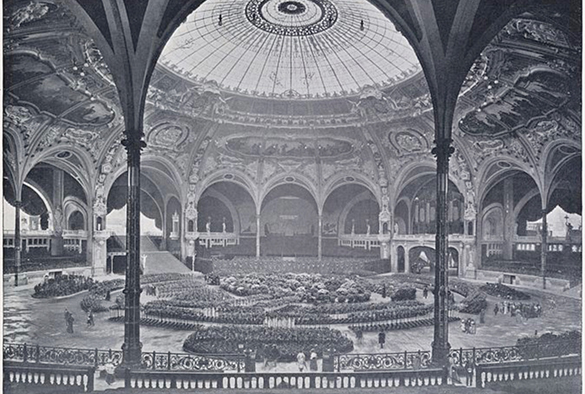
The University of Liverpool School of the Arts‘ WORD – IMAGE – POWER Public Lecture Series returns this week, with a new online event exploring social media, music and boxing, artificial intelligence and more, each Wednesday evening.
Now in its third year, each of the series’ five lectures provides insight into current research taking place in the School’s five Departments – Architecture, Communication & Media, English, Music and Philosophy.
On 10 March, Professor Richard Koeck’s analyses how the History and Future of Immersive Experiences in architectural settings such as the Panorama, Mareorama and Cineorama, tell us an extraordinary yet little-explored story about the risk, failure and reward that come with ground-breaking innovations. What might this story mean for the future of immersive technologies such as artificial intelligence and virtual reality? Join Professor Koeck and special guest panellists, Gav Strange and Ngaio Harding-Hill from Aardman; and Roz Coleman from Punchdrunk to find out more.
On 17 March, Dr Patricia Rossini examines the relationship between social sanctions and political talk on social media. In her lecture, Block. Unfriend. Quit: Selective Avoidance, Social Sanctions, and Political Discussion on Facebook and WhatsApp she uncovers how growing levels of political polarization around the world fuel threats to democratic values, and an increasingly divide citizenry. What is the role of social media in exposing people to echo-chambers, misinformation, and other types of problematic content, such as uncivil discourse? What are the consequences of selectively avoiding political content on social media?
After Easter, on 28 April, Dr Simran Singh reveals parallels between Music and the “sweet science” of Boxing. Her ethnographic research was conducted amongst elite professional and amateur boxers and kick-boxers in London. She compares how sporting and musical vocabularies, such as rhythm, groove and flow, are used and fused to identify, articulate and enjoy the ‘sweet science’ of boxing practice. What might these practices mean in relation to our pre-conceptions about music and boxing practices? How might they influence our own approach to music and sporting practices?
On 5 May, Dr Rachael Wiseman introduces us to Moral Creatures – Shaping the World Through Human Images. The philosopher and novelist, Iris Murdoch, wrote: “Man is a creature that makes pictures of himself and then comes to resemble the picture”. How have images of the human offered by poets and philosophers of the past shaped human life today? How do we know which pictures to copy and which to eschew? What sort of images do we need now if we are to become the sort of creatures who can navigate the moral, political and technological environment of the twenty-first century?
Finally, on 12 May, Dr Will Slocombe and guest AI scientist, Dr Louise Dennis will address the question Science Fiction’: what can stories teach us about Artificial Intelligence? In a whirlwind tour of examples of AI technology, from literature, film, and computer games, we will be guided through some of the dominant trends at work in these representations and encouraged to consider how they relate to our expectations of the future. If they are not ‘merely’ science fiction, what might such representations actually reveal?
WORD – IMAGE – POWER Public Lecture Series takes pace each Wednesday from 5.30pm to 7pm on Zoom, including opportunity for audience questions. To register your place, please visit: www.liverpool.ac.uk/arts/events/public-lecture-series-2020-21/
For further information, please contact School of the Arts Artistic Coordinator & Public Engagement Officer, Dr Helen Thomas on helen.thomas@liverpool.ac.uk